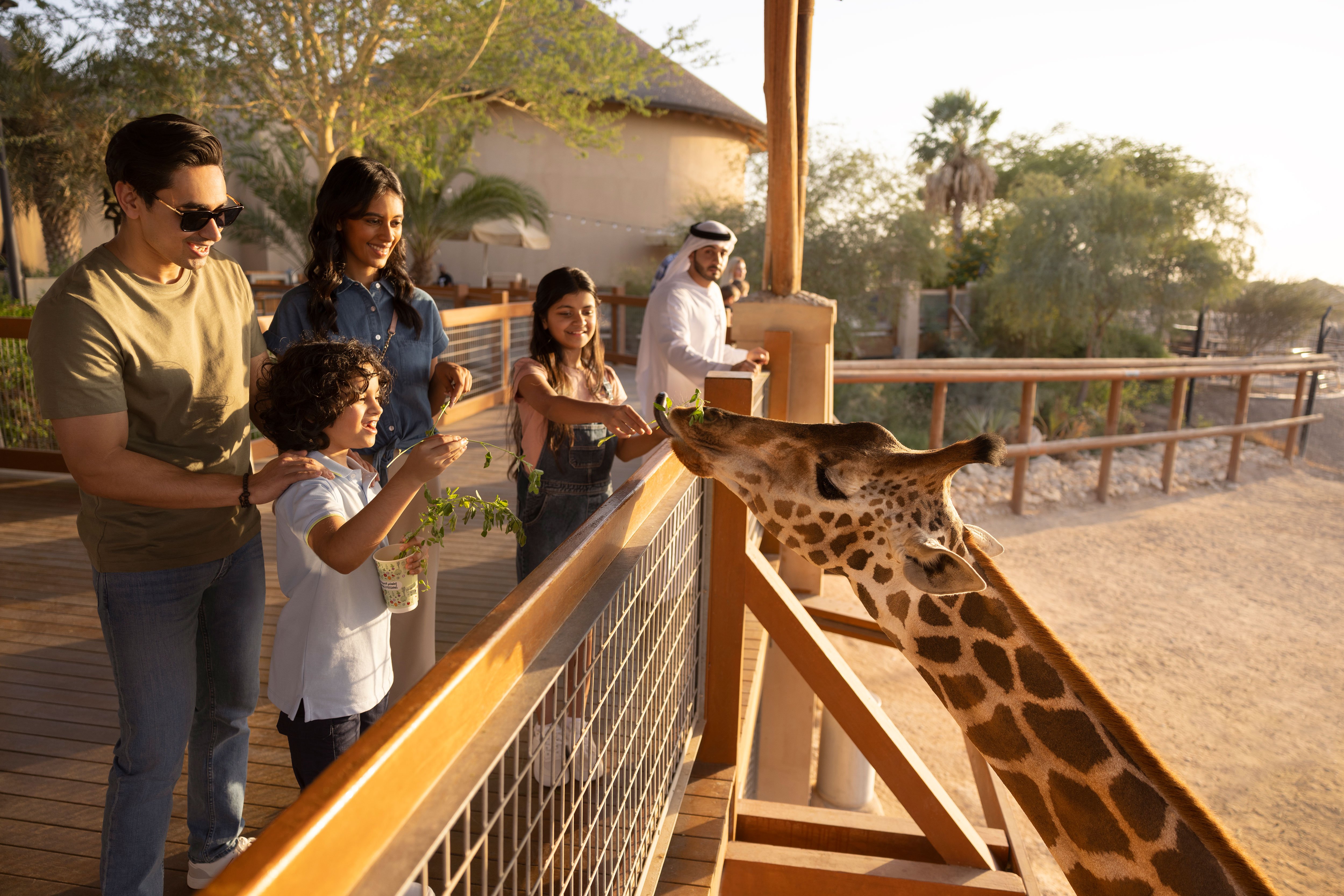See All
Al Ain Zoo is home to over 4,000 animals, an up-close giraffe feeding experience, camel riding and the inviting Elezba petting zoo. The spacious and well-kept zoo is the largest and most acclaimed in the region. Transparent enclosures are home to indigenous and exotic species, including the Arabian oryx, the big-horned Barbary sheep, rhinos, hippos, tigers, lions and more.
The zoo's well-respected conservation and breeding programme protects and preserves rare fauna from extinction, which includes a fascinating walk-through lemur experience. There are plenty of green public spaces for picnics, as well as playgrounds, cafés and restaurants to pick up a bite. There's also a train tour of the wildlife area. Entry to Al Ain Zoo costs AED 30 entry fee for adults and AED 10 for children.
Experience a zoo safari
For something really unique, book an Al Ain Safari. Led by passionate Emirati guides, it covers an impressive 217 hectares of land along the base of the majestic Jebel Hafit mountain range, offering you a glimpse of African lions, white rhinos, ostrich, zebra, wildebeest, gazelle, kudu, critically endangered or extinct-in-the-wild scimitar oryx, addax and more. In line with the vision of the UAE's founding father, Sheikh Zayed bin Sultan Al Nahyan, Al Ain Safari plays a prominent role in conservation, setting a benchmark for future conservation projects in the region.
End your evening with a Dinner with the Lions, enjoying a sumptuous meal on the edge of the park's lion territory.
Learn about the natural environment
The Sheikh Zayed Desert Learning Centre is a fantastic place to learn more about the UAE's natural environment. It is housed in a beautiful building boasting Leadership in Energy and Environmental Design (LEED) Platinum certification. Five interactive galleries showcase the country's rich history and future-forward ideas, encouraging visitors to reconsider their relationship with the environment and adopt more sustainable lifestyles.


